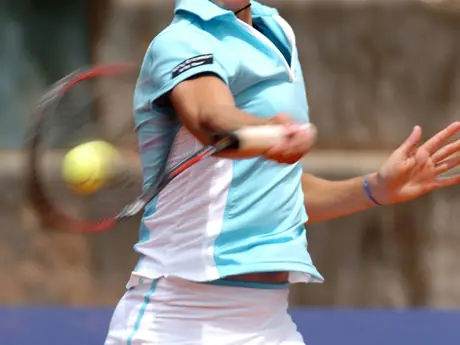CHAPTER 6: CHOKING – ITS CAUSES AND HOW TO MINIMIZE ITS EFFECTS Choking is most frequent at the finish of games, sets, and matches due to the uncertainty of outcome. You can limit choking damage by immediate acceptance of this uncertainty. Avoid stressful thoughts of winning by using rituals, focusing, and relaxation techniques. Rid yourself of the idea that choking will make you lose, and recognize that there are usually multiple opportunities to win, not just one.
CHAPTER 7: CONFIDENCE AND HOW TO GET IT IF YOU DON'T HAVE IT Confidence, aka self-belief, comes mostly from winning. Though it's more difficult, you can win without it by replacing it with sufficient emotional discipline. Slumps and hot streaks occur in cycles and both end naturally with time. Stressing over a slump prolongs it. You can speed its ending by several methods which we discuss.
CHAPTER 8: GAME PLANS Game plans give your efforts direction and structure. They can rely primarily on offense or defense but should be consistent with your personality. With Plan A you are looking for a match-up where you have a relative advantage, most commonly pitting your strengths against your opponent's weaknesses. With Plan B, which you always employ simultaneously with Plan A, you attempt to tire your opponent mentally.
CHAPTER 9: BREAKING DOWN YOUR OPPONENT MENTALLY You can weaken your opponent mentally by using dominance techniques. Be aware of momentum development – maintain it when you're winning and break it when you aren't. Take advantage of the let-downs that occur in transitional situations: at the end of sets, after long points, after service breaks, and after long games. Learn to resist becoming psyched out by opponents.
CHAPTER 10: MAINTAINING MENTAL EFFECTIVENESS IN THE HEAT OF BATTLE Remember the Golden Rule of tennis: Never do anything on court that doesn't help you win. Decide beforehand how you will handle the frustrations and errors that are likely to occur during match play. Understand the value of intensity and its role in playing percentage tennis. Players who have beaten you too frequently get into your head. Beating them requires exceptional emotional discipline and focus. Learn to deal with injuries, both yours and those of your opponents.
CHAPTER 11: THE VALUE OF OPTIMISM Being optimistic is always helpful during competition. If it does not occur naturally you can become more optimistic by deliberately focusing on the real positives that exist in every situation. Monitor your thoughts and be alert to negative ones. When one occurs replace it immediately with a positive one. A bad attitude is difficult to change in mid-match, so make sure to start out with a good one. When you are behind, hope is your most crucial asset, and it is always realistic.
CHAPTER 12: DEVELOPING YOUR GAME AND THE ROLE OF PARENTS Tennis is a difficult game and not enjoyable until you can control the ball with some level of consistency. The "middle game" is the heart of any player's game, and is learned by intelligent, repetitious practice, Tennis should generally be made fun for beginning youngsters, but some little push may occasionally be necessary. Tournaments can be motivating for kids, but they are stressful for parents and can impel even a good parent to act improperly.
CHAPTER 13: COURAGE AND HIGHER VALUES Competing successfully in tennis is helped by focusing on character development rather than on winning. Everybody wants to win anyway. Working to develop higher values such as courage, unselfishness, consideration for others, appreciation, and morality is good for your character and will, as a by-product, reduce your stress and help you win.
CHAPTER 14: THE PSYCHOLOGY OF DOUBLES An important doubles skill is the ability to make your partner play better. You affect your partner's emotional state and level of play with your gestures and words. Champions are not concerned with parceling out blame for a loss; rather they are focused on doing what it takes to win. You can also disrupt the opposing team by attacking the weaker player and by intimidation.
- 2
- of
- 2
About the Author









Discuss This Article